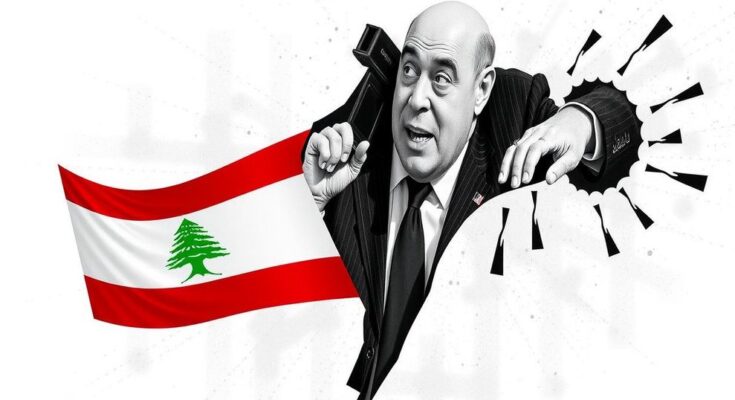Egyptian Foreign Minister Badr Abdelatty emphasized the need for a Lebanese consensus to resolve the presidential vacuum, without external interference. With a parliamentary session set for January 9 to elect a new president, the Lebanese government struggles with ongoing challenges and internal divisions among factions following the end of former President Michel Aoun’s term.
On Tuesday, Egyptian Foreign Minister Badr Abdelatty underscored the necessity of achieving a consensual resolution among Lebanese factions to address the ongoing presidential vacancy in Lebanon, emphasizing that this should proceed without external influences. This declaration came during a discussion with Jean-Yves Le Drian, the French President’s Special Envoy to Lebanon, which reviewed recent developments regarding Lebanon’s presidential elections. Abdelatty expressed the crucial need for a genuine Lebanese consensus to restore leadership and support national institutions during this tumultuous time.
With the Lebanese Parliament scheduled to reconvene on January 9 to elect a president, Lebanon has faced a leadership void since former President Michel Aoun’s term concluded in October 2022. So far, parliamentary attempts to elect a new president have been unsuccessful through 13 sessions spread over two years, the latest having occurred on June 14, 2023, primarily due to a lack of alignment among political factions. Parliament Speaker Nabih Berri reiterated the importance of proceeding with an election in light of the prevailing crisis.
This ongoing presidential vacuum coincides with Lebanon’s various external challenges, including a fragile ceasefire with Israel. Given the current climate, Berri previously characterized the conflict with Israel as the “most dangerous phase” in Lebanon’s history and called for swift action to elect a president who could unify rather than divide the nation. The Lebanese legislative processes require cooperation among different political blocs to settle on a candidate due to the distribution of parliamentary seats.
As Lebanon grapples with these issues, the upcoming parliamentary session remains pivotal; achieving a quorum of 86 members is essential for a presidential vote, with candidates needing 65 votes for a first-round victory. Naim Qassem, the Secretary-General of Hezbollah, expressed a commitment to contribute to the electoral process as part of their cooperative efforts within the state. Amidst these discussions, figures like Walid Jumblatt have reiterated support for Army Commander General Joseph Aoun as a suitable candidate, while the Lebanese Forces party has stressed that electing a president is crucial for state accountability.
In conclusion, the path to resolving Lebanon’s presidential vacuum hinges on fostering a collaborative environment among political factions. The upcoming election session on January 9 represents a critical juncture for Lebanon as it seeks to establish stable leadership in the face of ongoing internal and external pressures.
The issue of presidential vacancy in Lebanon emerged after the term of former President Michel Aoun ended in October 2022. Since then, Lebanese Parliament has struggled to elect a new president due to a lack of consensus amongst various political factions. The situation is exacerbated by ongoing tensions in the region and a fragile ceasefire with Israel.
In summary, Egypt’s call for a Lebanese-led consensus to resolve the presidential vacuum underscores the importance of internal unity in addressing Lebanon’s political stagnation. With critical parliamentary sessions upcoming, the political dynamics within Lebanon will play a significant role in determining its leadership stability moving forward.
Original Source: www.dailynewsegypt.com




